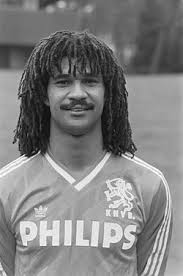Introduction
Ruud Gullit is a name synonymous with football excellence. As a pioneer in the sport, Gullit revolutionized perceptions of player versatility and leadership on and off the field. His contributions to football remain relevant today, illustrating the incredible impact athletes can have on the sport and society.
Early Life and Career
Born on September 1, 1962, in Amsterdam, Netherlands, Ruud Gullit began his football journey at the local club, FC Fortuna. He quickly moved to HFC Haarlem before making a name for himself at PSV Eindhoven. Gullit’s unique blend of skill, physicality, and tactical intelligence helped him capture the attention of scouts across Europe.
Major Achievements
Gullit’s career took off when he joined AC Milan in 1987. Under the guidance of legendary coach Arrigo Sacchi, he played a pivotal role in dominating European football. His time at Milan culminated in winning consecutive Serie A titles and a historic UEFA Champions League title in 1990. Additionally, he was a key figure in the Netherlands’ 1988 European Championship victory, showcasing his ability to perform on the biggest stages.
Coaching Career and Legacy
After retiring as a player, Gullit transitioned into coaching and management, with stints at clubs like Chelsea and the Netherlands national team. His philosophy emphasized creativity, teamwork, and resilience—qualities that he embodied throughout his playing career. Gullit is also known for his eloquent commentary and analysis, further solidifying his place in football beyond the pitch.
Conclusion
Today, Ruud Gullit’s legacy is one of inspiration and influence. He not only redefined the role of a modern footballer but also paved the way for future generations. As the sport continues to evolve, Gullit’s contributions will remain a cornerstone in the narrative of football history. Young players look up to him not only for his on-field skills but also for his character, proving that football is as much about leadership and integrity as it is about talent.


